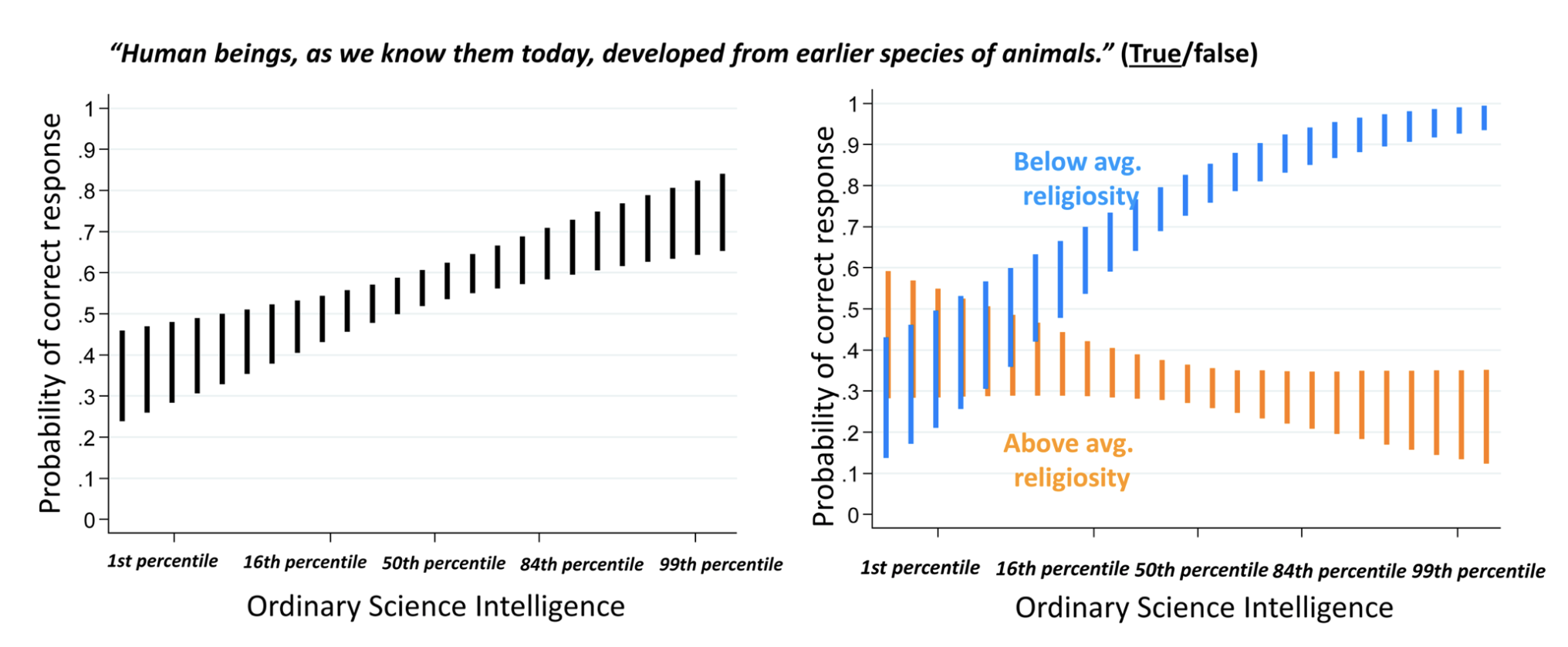Facts vs Cultural Identity
Thanks to Marc Verstaen for pointing me at this wonderful paper by Dan M. Kahan from Yale.
tldr: when it comes to answering questions on science, people can either tell you what they know, or which social group they belong to, but not simultaneously.
The paper posits that we have two, sometimes conflicting personas:
It is the dual nature of human reasoners as collective-knowledge acquirers and cultural-identity protectors.
Sometimes these two sides conflict. And when they do, people will choose to tell you which social group they belong to, even if they know the facts are not on their side.

This is both encouraging and disheartening to me. It’s encouraging that people actually do absorb fact-driven scientific consensus, that scientists are still respected, even by people who espouse unscientific facts; they may be driven to say what they do because of social pressure.
But it’s disheartening that social affinity has been increasingly weaponized. Disinformation is so pervasive now that there are entire subgroups who take deeply non-fact-based stances on major issues: abortion, vaccination, corruption, climate science. Such weaponized echo chambers have been effective at splitting societies across the globe into factions who are deeply divided by opinions that could be easily tested by honestly looking at data.
By turning these opinions into litmus tests for belonging to a group, entire populations are now prevented from changing their minds, lest they face embarrassment or loss of social standing.
While the paper doesn’t present a solution to the quandary, there’s a glimmer of hope in there: by asking a question that disentangles you from group affinity, it’s possible to agree on the facts.
Instead of asking
I believe climate change is caused by human activity (T/F)
ask
According to scientists, climate change is caused by human activity (T/F)
By shifting people away from their social burden, and focusing on expert opinion on facts, it may be possible to have a fact-based conversation. And by having a fact-based conversation, there is hope for forming a new social identity that’s based on the pursuit on the truth.
PS: This paper assumes that there exists a panel of experts (e.g. scientists) whose values drive them to search for the truth regardless of social pressure. An assault on such bodies of experts will sink any hope of consensus.